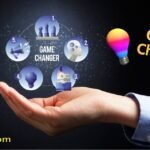Failure is often perceived as a negative outcome, a mark of incompetence, or a sign of weakness
Failure is often perceived as a negative outcome, a mark of incompetence, or a sign of weakness. However, this perspective fails to acknowledge the intrinsic value of setbacks on the journey toward success. In reality, failure is an inherent part of the learning process and serves as a crucial component of personal and professional growth. It reflects an individual’s willingness to take risks, venture beyond comfort zones, and pursue ambitious goals. Embracing failure allows individuals to cultivate resilience and adaptability, qualities that are essential for achieving long-term success.
Each instance of failure provides valuable insights and lessons that can significantly contribute to future endeavors. When individuals face setbacks, they are often presented with the opportunity to analyze what went wrong, identify areas for improvement, and develop new strategies to overcome obstacles. This constructive approach transforms failures into stepping stones rather than stumbling blocks. By viewing failures through this lens, one can appreciate the courage it takes to attempt challenging ventures, knowing that each effort, regardless of the outcome, advances their journey.
Moreover, the fear of failure often inhibits creativity and innovation. When people view failure as a shameful experience, they may hesitate to experiment or take calculated risks necessary for growth. Conversely, reframing failure as a natural and accepted aspect of success encourages individuals to engage in fundamental exploratory behaviors. A shift in mindset can lead to a more positive and empowering view of setbacks, reinforcing the idea that each failure can facilitate progress and discovery. Thus, acknowledging failure as a vital element of the pursuit of success not only helps alleviate the fear of it but also inspires continued effort and persistence in the face of challenges.
The Psychology of Failing
Failure encompasses a range of emotional and cognitive responses, often varying significantly among individuals. At its core, how one perceives failure deeply influences their emotional state and overall psychological well-being. For many, failure is synonymous with defeat, leading to feelings of inadequacy and disappointment. This negative emotional response can trigger a series of cognitive distortions, where individuals may amplify their perceived shortcomings while minimising their successes. Consequently, a failed project or task can become a reflection of one’s self-worth, impacting motivation and further engagement with challenging endeavors.
Moreover, the social context plays a crucial role in shaping one’s perception of failure. Societal expectations and cultural backgrounds can dictate how individuals interpret setbacks. In cultures that prioritize achievement, the stigma attached to failure can be particularly burdensome, making it harder for individuals to bounce back. Conversely, environments that encourage risk-taking and view failure as a part of the learning process can foster resilience, enabling individuals to confront challenges with greater enthusiasm rather than trepidation.
Another critical factor lies in self-esteem and its intricate relationship with failure. Individuals with high self-esteem are often better equipped to handle failure, viewing it as an opportunity for growth rather than a definitive end. On the other hand, those with lower self-esteem may experience a more profound impact, leading to a withdrawal from opportunities due to fear of failing again. Building a healthy self-image can effectively buffer against the negative repercussions of failing, allowing for a more constructive approach to setbacks.
Ultimately, failure, while undeniably challenging, has the potential to serve as a powerful catalyst for personal and professional growth. Understanding the psychological underpinnings of failure allows individuals to navigate their emotional responses and fosters a healthier relationship with their own setbacks, paving the way for resilience and long-term success.
Great Achievers and Their Failures
Throughout history, numerous renowned figures have encountered significant setbacks, yet these failures often served as vital catalysts for their eventual success. For instance, author J.K. Rowling faced rejection from multiple publishers before her first book, “Harry Potter and the Philosopher’s Stone,” finally found a home. Rowling’s perseverance in the face of adversity illustrates how her initial failures not only built her resilience but ultimately led her to create an iconic literary series adored worldwide.
Similarly, entrepreneur Steve Jobs experienced a highly publicized failure when he was ousted from Apple, the company he co-founded. This setback could have deterred many, but Jobs transformed his experience into an opportunity for growth. During his time away from Apple, he founded NeXT and acquired Pixar, both of which flourished under his leadership. Eventually, Jobs returned to Apple and revitalized it, demonstrating that failure can produce valuable lessons and foster a renewed sense of purpose.
Athletes, too, have faced significant challenges that shaped their success. Michael Jordan, for example, was famously cut from his high school basketball team. This pivotal moment motivated him to work tirelessly on his skills, ultimately making him one of the greatest basketball players in history. Jordan’s journey emphasizes how setbacks can fuel determination and lead to remarkable achievements.
These stories of famous figures reveal a common thread: setbacks can profoundly impact personal development. Each failure, rather than representing an endpoint, becomes an integral part of the narrative of success. Embracing these challenges fosters resilience, creativity, and a relentless commitment to achieving one’s goals. By understanding that failures are not the final word but rather stepping stones toward greatness, individuals can navigate their own journeys with renewed vigor and hope.
Learning from Setbacks
Embracing failure is an integral aspect of personal and professional development. Setbacks provide unique opportunities for reflection, offering profound insights that can catalyze growth and improvement. When one experiences a failure, it is crucial to assess what went wrong and to understand the underlying causes. This analysis not only aids in recognizing mistakes but also helps in forming a strategic plan for future endeavors.
To effectively learn from setbacks, individuals can adopt a systematic approach. One method is to engage in self-reflection through journaling, where thoughts and emotions related to the failure can be articulated. This practice enables a clearer understanding of the circumstances that contributed to the unsuccessful outcome. Additionally, seeking feedback from peers or mentors can provide external perspectives that may have been overlooked. This collaborative scrutiny is invaluable for recognizing behavioral patterns and decision-making processes that warrant modification.
Furthermore, it is beneficial to conceptualize failure as a stepping stone rather than an endpoint. Many successful figures in various fields categorically affirm that their achievements are often built upon previous failures. For instance, Thomas Edison famously drew from his numerous unsuccessful attempts at creating the electric light bulb to inspire his relentless pursuit of innovation. His experiences underscore the importance of persistence and adaptability, two key characteristics required for overcoming obstacles.
Moreover, applying the lessons learned from setbacks can enhance resilience. Individuals who consciously choose to view failures as learning opportunities are often better equipped to manage future challenges. To facilitate this mindset shift, it is advisable to focus on actionable steps that can be taken post-failure. This may involve setting more realistic goals or acquiring new skills that address the factors leading to the setback. By actively working to improve and adapt, individuals lay the foundation for sustainable growth, ultimately transforming setbacks into powerful lessons for future success.
Cultivating Resilience Through Failure
Failure is often perceived as a setback, but it can be an invaluable teacher, instilling resilience in individuals. Resilience, defined as the capacity to recover quickly from difficulties, is a crucial trait for navigating life’s challenges, particularly in both personal and professional contexts. When individuals encounter failure, they are faced with the opportunity to learn and grow. This process of reflection can lead to greater adaptability, fostering a mindset prepared to tackle future obstacles with renewed vigor.
Repeated exposure to failure enables individuals to develop a more robust psychological framework. Each setback presents unique lessons that bolster one’s ability to persevere. This continual cycle of challenge and recovery creates a sense of familiarity with hardship, making it easier to confront subsequent difficulties. The act of overcoming failure nurtures tenacity, reinforcing the belief that success is achievable despite temporary setbacks. As people face challenges, they often discover strengths and strategies that they were previously unaware of, further enhancing their resilience.
Moreover, the cultivation of resilience through failure leads to significant personal growth. It encourages individuals to step out of their comfort zones, test their limits, and gain confidence in their abilities. This journey necessitates a shift in perspective; instead of viewing failure as a definitive endpoint, it should be seen as a critical part of the learning process. By reframing failure in this manner, individuals cultivate a growth mindset that prioritizes development over perfection. Thus, embracing setbacks ultimately serves to solidify a stronger, more adaptable individual, well-equipped to face future challenges with persistence and strength.
Changing Mindset: From Fixed to Growth
Adopting a growth mindset is essential for individuals who encounter setbacks along their journey toward success. A growth mindset is characterized by the belief that one’s abilities and intelligence can be developed through effort, learning, and perseverance. In contrast, a fixed mindset posits that talents and capabilities are static traits, leading individuals to view failure as a definitive end rather than an opportunity for growth. Understanding this distinction is crucial for fostering resilience in the face of challenges.
Individuals with a fixed mindset often perceive obstacles as insurmountable barriers, which can lead to a fear of failure that stifles creativity and innovation. They may avoid taking risks or shy away from situations where they might not succeed, ultimately hindering their personal and professional growth. On the other hand, those who cultivate a growth mindset embrace challenges, viewing failures as valuable learning experiences rather than reflections of their worth. This perspective allows them to adapt, reframe situations, and persist with renewed determination.
To transition from a fixed mindset to a growth mindset, several strategies can be employed. First, it is vital to reframe thoughts surrounding failure. Instead of perceiving failures as personal shortcomings, individuals should view them as stepping stones for improvement. Keeping a journal can also prove beneficial, as documenting thoughts and reflections on failures can provide clarity and insight on lessons learned. Additionally, surrounding oneself with supportive peers who encourage a culture of growth can foster a conducive environment for developing this mindset.
By embracing these strategies and shifting perspectives, individuals can transform the way they approach challenges and setbacks. This change not only enhances personal resilience but also underscores the belief that effort and learning are fundamental components of the journey toward success.
Failure as a Catalyst for Innovation
In the realm of innovation, failure is often regarded as an essential stepping stone toward breakthroughs. When individuals and organizations embrace failure, they create an environment where experimentation is not only accepted but encouraged. This culture of risk-taking can lead to new ideas, creative solutions, and enhanced problem-solving capabilities. The willingness to fail promotes a mindset where the potential for groundbreaking innovations can flourish.
Consider the example of technology startups, which frequently pivot their business models in response to failures. Each setback serves as a lesson, providing invaluable insights that guide future endeavors. These entities embrace a cycle of trial and error, understanding that every failed attempt brings them closer to successful outcomes. In this context, failure is not seen as a deterrent but rather as an opportunity to learn and adapt. Such a perspective fosters resilience and promotes innovative thinking, facilitating the development of pioneering products or services.
Moreover, organizations that prioritize a culture of openness to failure typically see a greater level of collaboration among team members. When employees feel safe to voice their ideas without fear of judgment, the creative process becomes more vibrant and inclusive. This collaboration can lead to unexpected connections and potential innovations that would not have surfaced in a risk-averse environment. Encouraging team members to share their failures fosters a sense of community and collective learning, which in turn ignites further exploration of uncharted territories.
By accepting failure as an inevitable component of the innovation process, both individuals and organizations can unlock their full creative potential. This approach not only breeds resilience but also emphasizes the importance of a growth mindset, which values learning and development over the fear of missteps. Through this lens, embracing failure truly becomes a catalyst for innovation.
Success Stories Born from Failure
Many successful individuals and companies have transformed their greatest failures into remarkable achievements, illustrating that setbacks often serve as stepping stones toward eventual triumph. One of the most emblematic examples is that of Thomas Edison. Although he is widely celebrated for inventing the electric light bulb, his path to success was riddled with failures. Edison famously remarked that he had not failed but rather found ten thousand ways that wouldn’t work. His perseverance and ability to learn from each setback ultimately led to groundbreaking innovations that changed the world.
Another compelling case study is that of J.K. Rowling, the famed author of the Harry Potter series. Before her meteoric rise to literary stardom, Rowling faced numerous rejections from publishers, with many deeming her manuscript unpublishable. Instead of succumbing to despair, she used these setbacks as motivation to refine her work. The eventual acceptance of her manuscript not only launched one of the most significant literary franchises but also showcased the importance of resilience and belief in one’s vision.
In the business world, we can look at the story of Apple Inc. When Steve Jobs was ousted from the company he co-founded, it appeared to be a devastating failure. However, this setback led him to explore new ventures, including the creation of NeXT and Pixar. Upon his return to Apple, Jobs leveraged the knowledge gained from those experiences to reinvigorate the company, ushering in a series of innovative products that have since defined the technology industry.
These stories exemplify how difficulties and disappointments can foster growth, creativity, and resilience. By transforming failures into valuable lessons, both individuals and organizations can emerge stronger and more prepared for future challenges. Embracing setbacks allows for innovation and personal development, ultimately paving the way for significant achievements.
As we reflect on the theme of failure throughout this blog post, it becomes clear that setbacks are not merely obstacles but rather integral components of the path to success
As we reflect on the theme of failure throughout this blog post, it becomes clear that setbacks are not merely obstacles but rather integral components of the path to success. Each point discussed reinforces the notion that failures can serve as valuable learning opportunities, shaping our experiences and informing our future decisions. Embracing failure opens the door to personal growth and resilience, allowing individuals to identify their strengths and weaknesses in the process.
Throughout this exploration, we have highlighted that failure encourages reflection, prompting individuals to reassess their strategies and approaches. This introspection is vital, as it fosters a mindset that is adaptable and open to innovation. Those who are willing to recognize and analyze their missteps are more likely to develop solutions that lead to eventual success. Furthermore, the collective experiences of influential figures show that failure is often a prerequisite for achieving significant milestones, emphasizing its role as a catalyst for progress.
Moreover, cultivating a culture that values failure can lead to enhanced creativity and willingness to take risks. By shifting the focus from fear of failure to a celebration of effort, we empower ourselves and those around us to pursue bold endeavors. This not only contributes to individual success but also promotes collaboration and support within teams and communities.
In conclusion, embracing failure is a critical component of any journey towards success. By recognizing the intrinsic value of our setbacks and integrating the lessons learned into our future efforts, we lay a solid foundation for continued growth and achievement. Let us approach each challenge with determination, viewing failures as essential stepping stones in the pursuit of our goals.









